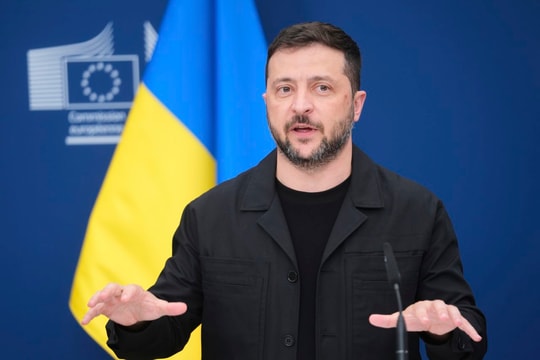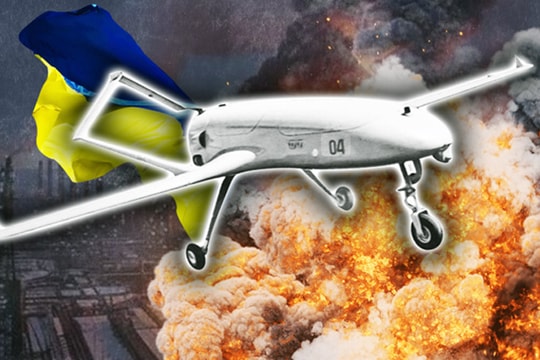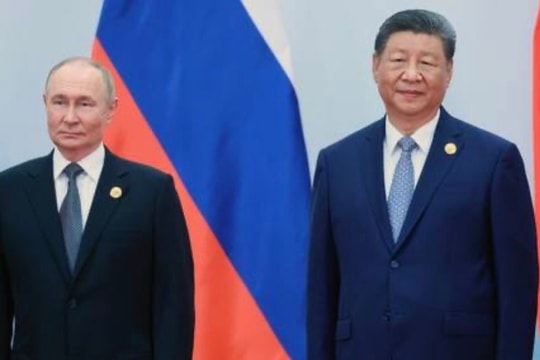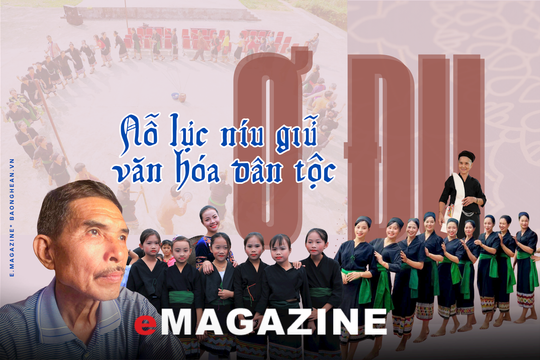Second honeymoon of the Russian-Indian 'couple'
(Baonghean) - Over the past 10 years, the annual India-Russia summits have gradually become boring events - likened to a marriage whose romance has passed. However, this year's conference in India witnessed many interesting things. Both sides want to regain their enthusiasm and renew their relationship to suit the new reality.
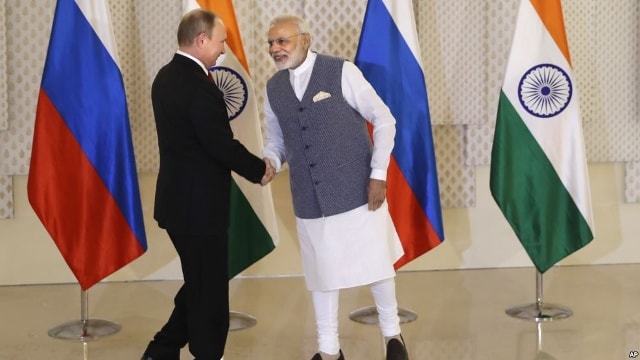 |
| Indian Prime Minister Narendra Modi (right) shakes hands with Russian President Vladimir Putin before a bilateral meeting in India, October 15. Photo: AP. |
New turning point
“One old friend is better than two new friends” was the affirmation of Indian Prime Minister Narendra Modi about the relationship with Russia after talks with Russian President Vladimir Putin last weekend. The friendly gestures between the two leaders captured by reporters also showed the warmth between them as well as the level of cooperation between the two countries.
Similar to the agenda of a high-level meeting, the two leaders of Russia and India discussed bilateral cooperation and hot international issues. However, the results of this meeting are considered significant when India and Russia signed a series of specific agreements on defense and energy.
New Delhi and Moscow signed 16 agreements including the joint production of 200 military helicopters. India will also buy Russian frigates and missile defense systems to bolster its defenses on its borders with Pakistan and China.
Most notable of these is the agreement for Moscow to supply New Delhi with the state-of-the-art S-400 Triumf air defense missile system. This is Russia's most modern generation of tactical missiles and is also one of the most modern air defense missile complexes in the world today.
The deal is significant for Russia-India relations. India has historically relied almost entirely on Russia to equip its armed forces, but has recently diversified its options, leaning toward cooperation with the United States, France, and Israel. With the S-400 deal, Russia hopes to overtake the United States and Europe in the fierce competition to remain India’s largest defense equipment supplier.
In addition to defense, the two countries also tightened their ties with major economic agreements. Russia's largest oil company, Rosneft, officially signed an agreement to buy a controlling stake in India's Essar Oil for $13 billion.
After the second reactor of the Russian-built nuclear plant in southern India went into operation, Russia continued to support India in building two more reactors. In addition, the two sides also signed an agreement to establish a joint investment fund with a capital of 1 billion USD.
These agreements are expected to give a new impetus to the India-Russia relationship to a new level, in the context of the relationship between the countries being tested by changes in global alliance strategies and the Middle East conflict.
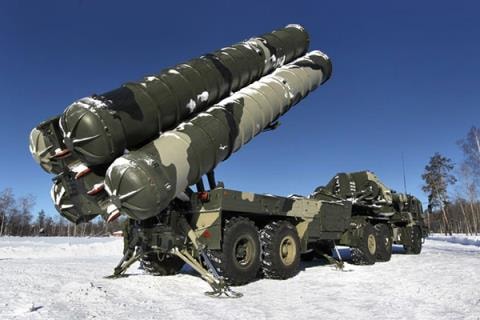 |
| India is particularly interested in the contract to buy the S-400 system from Russia. Photo: Reuters. |
The challenge of balance
Russia and India were close allies during the Cold War but their relationship has become more complicated in recent years. Talks with Russian President Vladimir Putin to renew ties appear to have gone awry as India strengthens ties with the US and Russia develops closer ties with China and Pakistan.
However, at present, both Russia and India need each other. In the context of facing difficulties from economic sanctions from the US and the West, Russia's promotion of economic cooperation with India is seen as a step to help Moscow stabilize its domestic economy.
For India, ensuring energy security is the country's top goal in implementing its "Make in India" economic development strategy. New Delhi also wants to upgrade its military equipment to protect its borders with Pakistan, its arch-enemy, and China, an increasingly powerful power.
However, strengthening Russia-India relations requires both sides to choose positions so as not to “displease” their own partners. Information about Russia selling India the S-400 missile system will certainly make China “lose sleep”. What makes Beijing feel unhappy is that the agreement was signed in the context of Moscow-Beijing relations at an unprecedentedly good time and Beijing is confronting and competing with New Delhi.
Russia's move will inevitably make China suspicious that President Putin's administration, on the one hand, sells China many advanced weapons, but on the other hand, seeks to "contain" its ally by selling cutting-edge weapons to neighboring countries that confront China.
Similarly, the US is certainly not comfortable with its “strategic partner of the 21st century” returning to its warm relationship with Russia. This is clearly a difficult problem for Prime Minister Modi. A neutral approach in relations with the great powers can bring India many immediate benefits when these powers bring “many gifts” to attract and gain support.
But in the long run, when everyone plays games, there will never be any close friends. And so, Prime Minister Modi will have to be very skillful in handling the "tightrope walking" in relations with major countries.
According to observers, the Russia-India relationship will go further in the future due to the geopolitical roles of both countries. And to have a better second “honeymoon”, both need flexible calculations not only on the bilateral level but also in other international relations.
Thanh Huyen
| RELATED NEWS |
|---|

